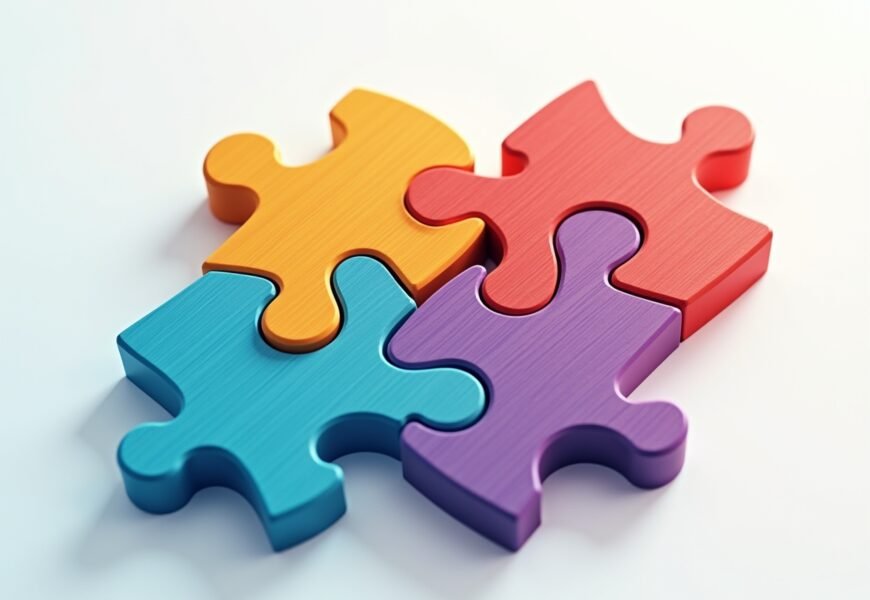Over 10% of people worldwide may face a personality disorder, deeply affecting their relationships and inner lives. Understanding personality disorders is vital for anyone aiming to navigate complex human connections, whether with a partner, friend, or family member. These conditions often leave loved ones confused, questioning why certain behaviors persist despite efforts to connect. By exploring what personality disorders are, their impact, and practical ways to build empathy, we can turn confusion into compassion and strengthen our relationships.
Table of Contents
- What Are Personality Disorders?
- Why Understanding Matters
- Practical Steps to Connect
- Conflict Resolution Tips
- Real-Life Stories
- Overcoming Challenges
- Moving Forward
What Are Personality Disorders?
Understanding personality disorders begins with knowing their essence. These are mental health conditions defined by lasting patterns of behavior, thoughts, and emotions that diverge from cultural norms. They often disrupt a person’s identity and their ability to relate to others, creating relationship hurdles that feel tough to untangle.
Experts classify them into three clusters:
- Cluster A: Includes paranoid, schizoid, and schizotypal disorders. People may appear eccentric or detached.
- Cluster B: Features antisocial, borderline, histrionic, and narcissistic disorders. These individuals often show intense or erratic emotions.
- Cluster C: Encompasses avoidant, dependent, and obsessive-compulsive disorders, marked by anxiety or fear.
Each type offers a window into unique struggles. For example, borderline personality disorder might involve emotional ups and downs, while avoidant personality disorder could mean shying away from closeness. Understanding personality disorders through these clusters helps us approach loved ones with patience and clarity. Learn more from the National Institute of Mental Health.
Why Understanding Matters
The effects of personality disorders ripple outward, touching everyone involved. Relationships can falter due to miscommunication or emotional swings. Yet, the internal challenges for those affected are just as real. Understanding personality disorders opens the door to empathy, fostering healthier interactions.
For deeper insights, explore our guide to emotional intelligence to see how awareness enhances connection.
Practical Steps to Connect
Building bridges with someone who has a personality disorder takes effort and care. Here’s how to start:
- Educate Yourself: Knowledge empowers empathy. Read books or attend workshops on personality disorders. The American Psychological Association offers valuable resources.
- Listen Actively: Focus fully on their words and feelings without rushing to respond. This builds trust.
- Set Boundaries: Care for yourself by defining limits. If demands overwhelm you, express them kindly but firmly.
- Encourage Help: Suggest therapy with sensitivity, framing it as a step toward well-being.
Understanding personality disorders through these steps nurtures mutual respect while safeguarding your peace.
Conflict Resolution Tips
Conflict can escalate quickly with personality disorders in play. Try these approaches:
- Use “I” Statements: Say “I feel unheard when we don’t talk” instead of “You never listen.” It softens the tone.
- Seek Common Ground: Focus on shared goals, like a calm home, to align efforts.
- Take Breaks: Step away if tensions spike, returning with a fresh mindset.
These tactics ease friction and promote understanding. Check our conflict resolution strategies for more tools.
Real-Life Stories
Understanding personality disorders shines through real experiences. Sarah lived with Mike, who had borderline personality disorder. His mood swings left her drained. Instead of withdrawing, she researched the condition, learning his reactions tied to inner fears, not her.
Listening and reassuring him built a trusting space where they could grow together. Jenna faced a different test with Lisa, a friend with narcissistic traits. Lisa’s boasts hurt Jenna, but she spoke up, saying, “I cherish our friendship but need support too.”
This sparked Lisa’s self-awareness, strengthening their bond. These stories show how understanding personality disorders can heal ties.
Overcoming Challenges
Stigma often clouds understanding personality disorders, labeling people as difficult. This isolates them and delays help. Education fights this bias, as does advocacy in our circles.
Expectations can also trip us up. Progress may be slow, with behaviors lingering. Patience is key. Celebrate small wins, like a candid talk, to keep momentum. Understanding personality disorders means accepting the journey’s pace.
Moving Forward
Understanding personality disorders is a path to deeper connection. It lets us see past tough behaviors to the person within, offering a chance for empathy-driven relationships. Your role as a partner, friend, or family member is crucial.
By learning, listening, and setting limits, you foster healing for all. The journey twists but leads to resilience. With openness and effort, understanding personality disorders builds lasting bonds. Empathy starts with you. For more relationship tips, visit our healthy communication guide.














